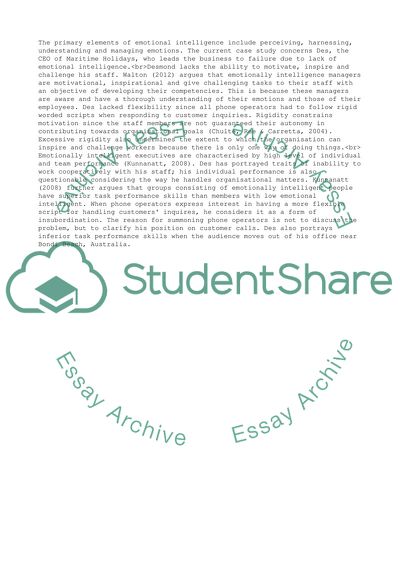Cite this document
(Emotional intelligence case study Assignment Example | Topics and Well Written Essays - 2000 words, n.d.)
Emotional intelligence case study Assignment Example | Topics and Well Written Essays - 2000 words. https://studentshare.org/human-resources/1814672-emotional-intelligence-case-study
Emotional intelligence case study Assignment Example | Topics and Well Written Essays - 2000 words. https://studentshare.org/human-resources/1814672-emotional-intelligence-case-study
(Emotional Intelligence Case Study Assignment Example | Topics and Well Written Essays - 2000 Words)
Emotional Intelligence Case Study Assignment Example | Topics and Well Written Essays - 2000 Words. https://studentshare.org/human-resources/1814672-emotional-intelligence-case-study.
Emotional Intelligence Case Study Assignment Example | Topics and Well Written Essays - 2000 Words. https://studentshare.org/human-resources/1814672-emotional-intelligence-case-study.
“Emotional Intelligence Case Study Assignment Example | Topics and Well Written Essays - 2000 Words”. https://studentshare.org/human-resources/1814672-emotional-intelligence-case-study.


